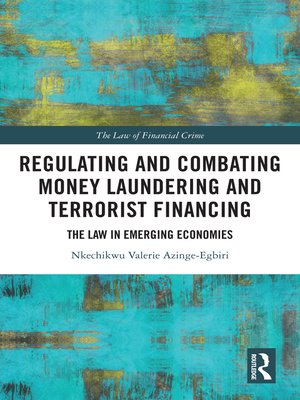Regulating and Combating Money Laundering and Terrorist Financing
ebook ∣ The Law in Emerging Economies · The Law of Financial Crime
By Nkechikwu Azinge-Egbiri

Sign up to save your library
With an OverDrive account, you can save your favorite libraries for at-a-glance information about availability. Find out more about OverDrive accounts.
Find this title in Libby, the library reading app by OverDrive.



Search for a digital library with this title
Title found at these libraries:
| Library Name | Distance |
|---|---|
| Loading... |
This book analytically reviews the impact of the global anti-money laundering and counter-terrorist financing (AML/CFT) framework on the compliance trajectory of a number of jurisdictions to this framework.
The work begins by examining the international financial sector reform and its evolution to inculcate the global framework for AML/CFT regulations. It challenges the resulting uniform AML/CFT due to its paradoxical impact on the compliance trajectory of African countries and emerging economies (ACs/EEs). This is done through an examination of the pre-conditions for effective regulation and compliance drivers for ACs/EEs that reveals the behavioural impact of the AML/CFT standards on the bloc of countries. Through the application of agency theory, it explores the relationship between ACs/EEs on the one hand and the international financial institutions that formulate, disseminate and facilitate compliance with the global framework for AML/CFT standards on the other. The remaining chapters review empirically the compliance pressures and resulting compliance trajectory of ACs/EEs with the AML/CFT standards. The final part of the book provides a detailed explanation of the compliance challenges of ACs/EEs and the legitimacy concerns that facilitate this.
This book offers a new direction on the impact of global AML/CFT standards on ACs/EEs and contributes to the understanding of the conditions under which the global standards are likely to facilitate proactive compliance within these blocs of countries. As such it will be a valuable resource for academics, researchers and policy-makers working in this area.







